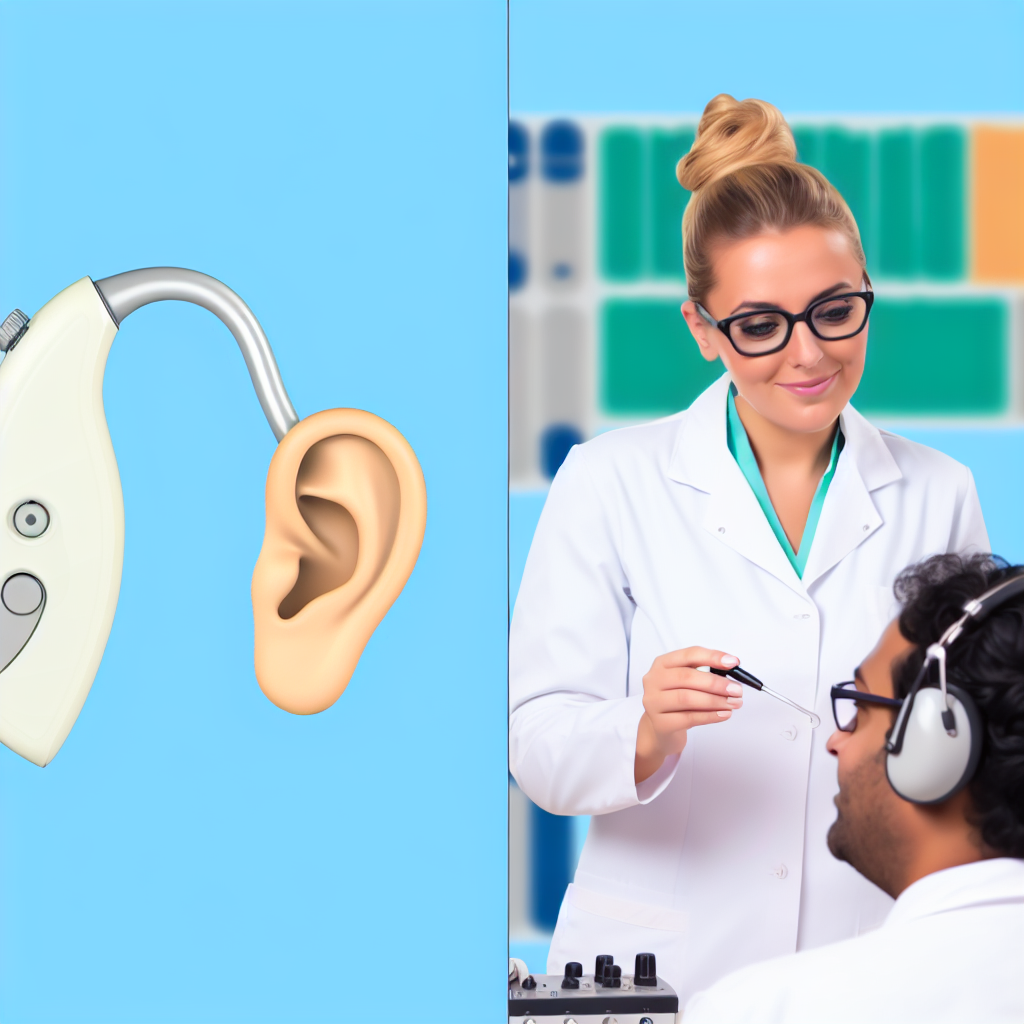
When it comes to addressing hearing loss and improving your quality of life, understanding the difference between a hearing aid and an audiologist is crucial. While these two elements work together in the journey toward better hearing, they serve distinctly different roles in your hearing healthcare experience.
What is a Hearing Aid?
A hearing aid is a sophisticated electronic device designed to amplify and process sound for individuals experiencing hearing loss. These small but powerful devices have evolved significantly over the years, incorporating advanced digital technology to provide clearer, more natural sound quality.
Modern hearing aids typically consist of several key components:
- Microphone to capture environmental sounds
- Digital processor to analyze and adjust sound signals
- Speaker (receiver) to deliver amplified sound to the ear
- Battery or rechargeable power source
- Various controls and programming options
There are several types of hearing aids available today, including behind-the-ear (BTE), in-the-ear (ITE), and completely-in-canal (CIC) models. Each type offers different benefits depending on the severity of hearing loss, lifestyle preferences, and aesthetic considerations.
What is an Audiologist?
An audiologist is a licensed healthcare professional who specializes in diagnosing, treating, and managing hearing and balance disorders. These experts have completed extensive education, typically holding a doctoral degree in audiology (Au.D.), and are trained to provide comprehensive hearing healthcare services.
Audiologists perform various essential functions in hearing healthcare:
- Comprehensive hearing evaluations to determine the type and degree of hearing loss
- Hearing aid selection, fitting, and programming
- Ongoing hearing aid maintenance and adjustments
- Tinnitus assessment and management
- Hearing protection recommendations
- Rehabilitation and counseling services
Key Differences: Device vs. Professional
The fundamental difference between a hearing aid and an audiologist lies in their nature: one is a medical device, while the other is a healthcare professional. Understanding this distinction helps clarify their respective roles in your hearing journey.
Hearing aids are tools that require proper selection, fitting, and ongoing care to be effective. They cannot function optimally without professional guidance and customization.
Audiologists are the experts who ensure these devices work properly for your specific hearing needs. They provide the knowledge, skills, and ongoing support necessary to maximize the benefits of hearing aid technology.
Why You Need Both for Optimal Results
While hearing aids are remarkable devices, they are most effective when properly fitted and programmed by a qualified audiologist. Professional hearing testing is essential to determine the right hearing aid technology for your specific type and degree of hearing loss.
The relationship between hearing aids and audiologists is symbiotic. The audiologist’s expertise ensures that the hearing aid technology is optimized for your unique hearing profile, lifestyle needs, and personal preferences.
The Importance of Professional Hearing Care
Attempting to address hearing loss without professional guidance can lead to suboptimal results. Over-the-counter hearing devices, while more accessible, cannot replace the personalized care and expertise that a licensed audiologist provides.
Professional hearing aid fitting involves:
- Comprehensive hearing assessment
- Personalized device selection
- Custom programming and fine-tuning
- Proper fit verification
- Training on device use and maintenance
- Ongoing support and adjustments
Cal Hearing Services: Your Partner in Better Hearing
At Cal Hearing, we understand the importance of both quality hearing aid technology and professional expertise. Our comprehensive services are designed to address all aspects of your hearing healthcare needs.
Our experienced audiologists provide:
- Professional hearing testing using state-of-the-art equipment
- Expert hearing aid fitting and programming
- Specialized tinnitus therapy for those experiencing ringing in the ears
- Custom hearing protection solutions
- Professional hearing aid repairs and maintenance
We proudly serve communities throughout our region, and you can learn more about the areas we serve on our website.
Educational Resources and Ongoing Support
Understanding hearing health is an ongoing process. That’s why Cal Hearing provides extensive educational materials through our resources section and regularly updated blog. These resources help patients make informed decisions about their hearing healthcare and stay current with the latest developments in hearing aid technology.
Taking the Next Step in Your Hearing Journey
If you’re experiencing hearing difficulties, don’t let them impact your quality of life any longer. The combination of advanced hearing aid technology and professional audiological care can significantly improve your ability to communicate, enjoy social activities, and maintain your independence.
Remember, both hearing aids and audiologists play crucial roles in addressing hearing loss effectively. While hearing aids provide the technological solution, audiologists provide the expertise to ensure these devices work optimally for your specific needs.
Ready to take the next step toward better hearing? Contact Cal Hearing today to schedule your comprehensive hearing evaluation and discover how we can help you reconnect with the sounds that matter most in your life.









